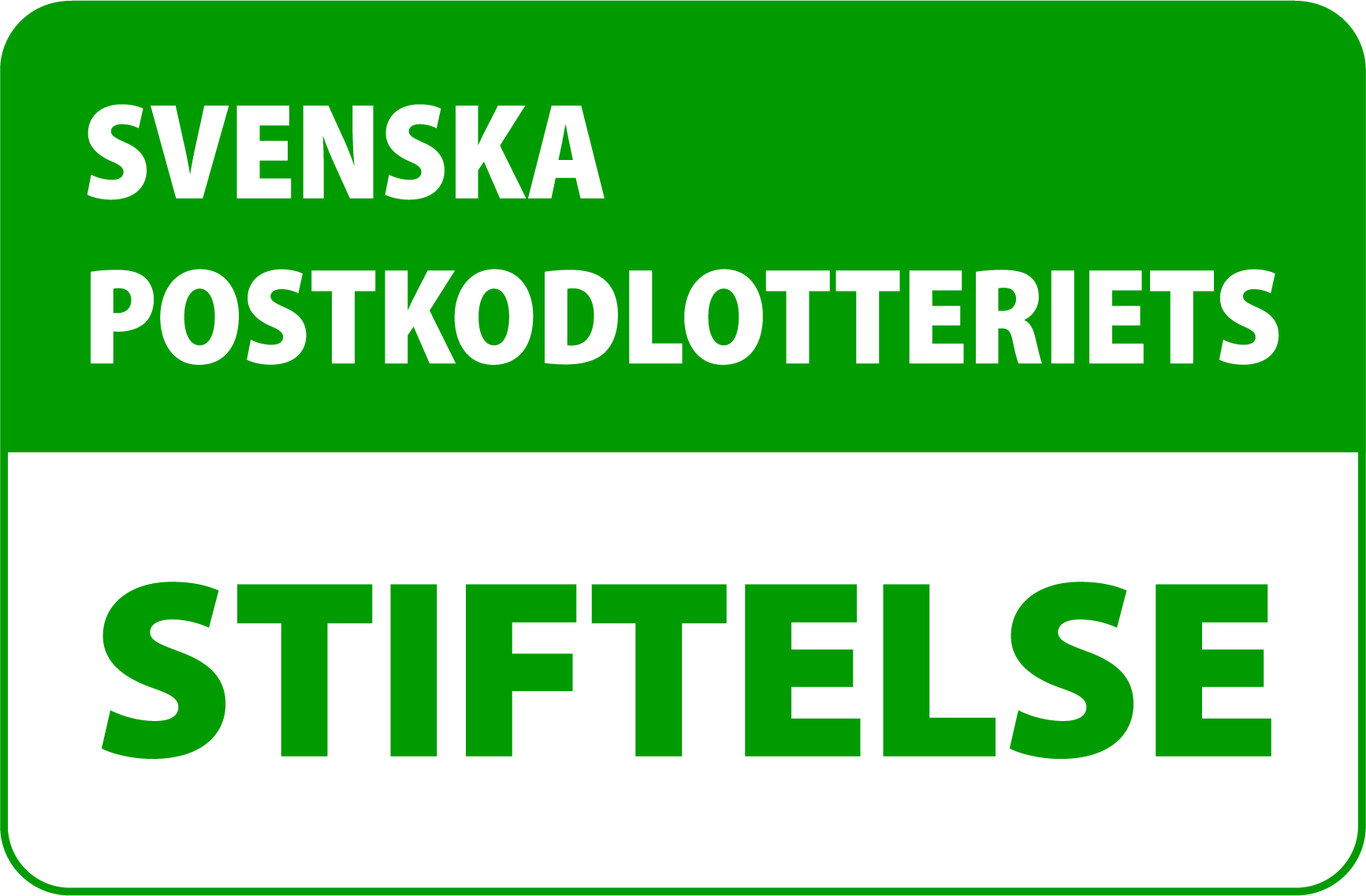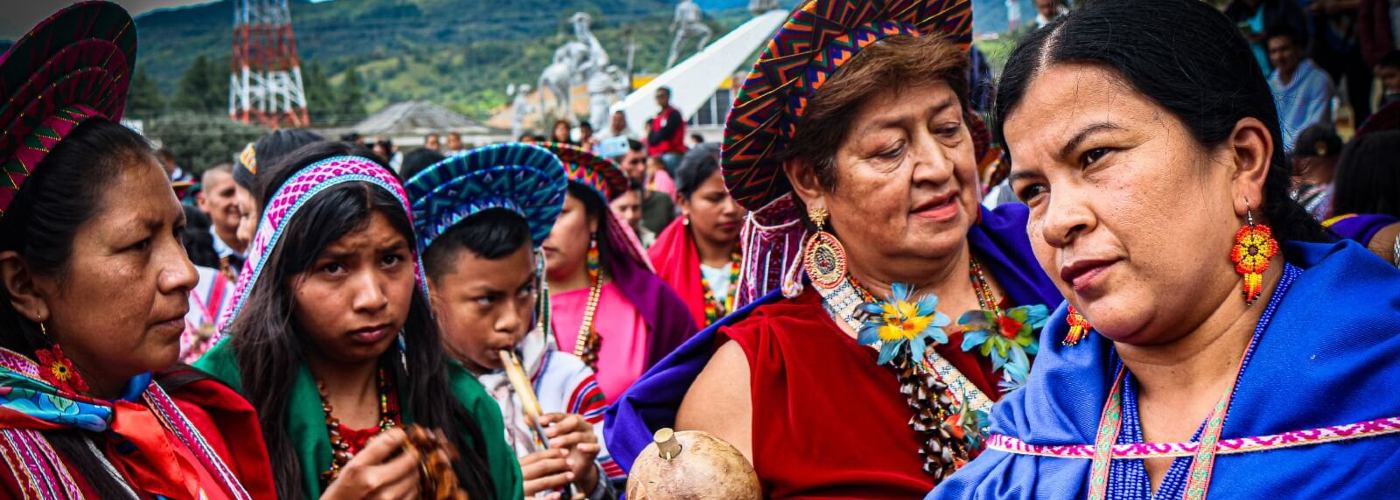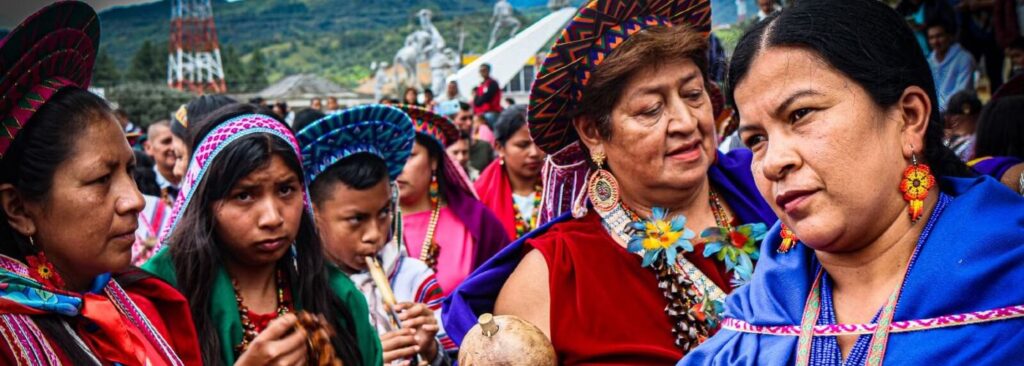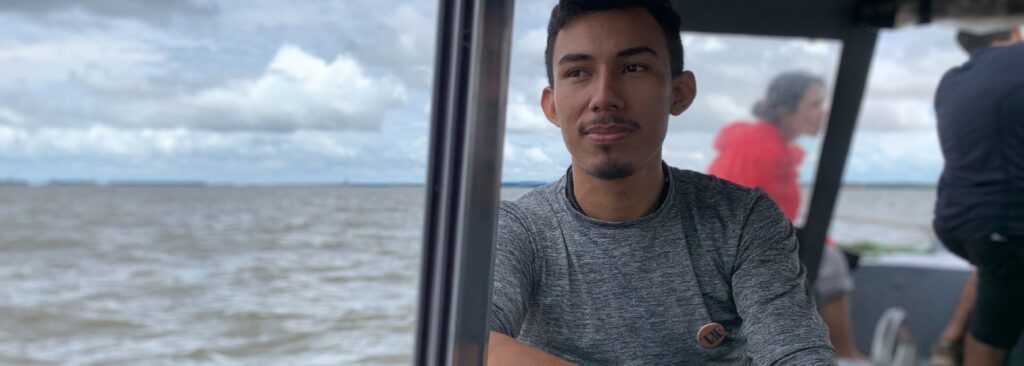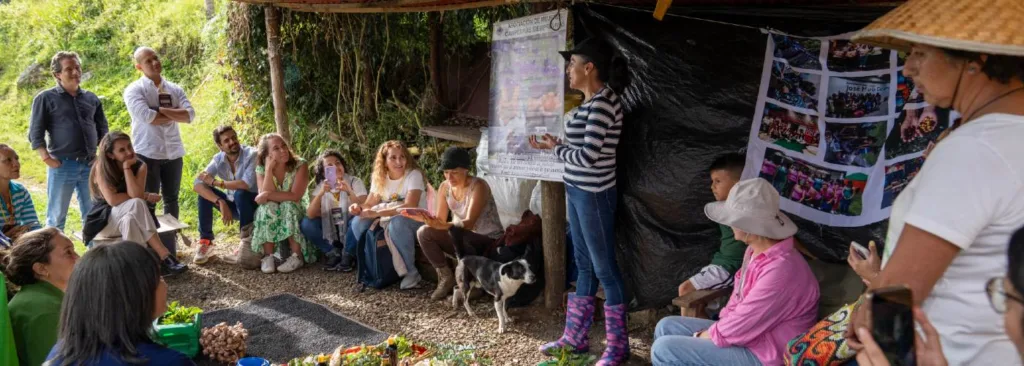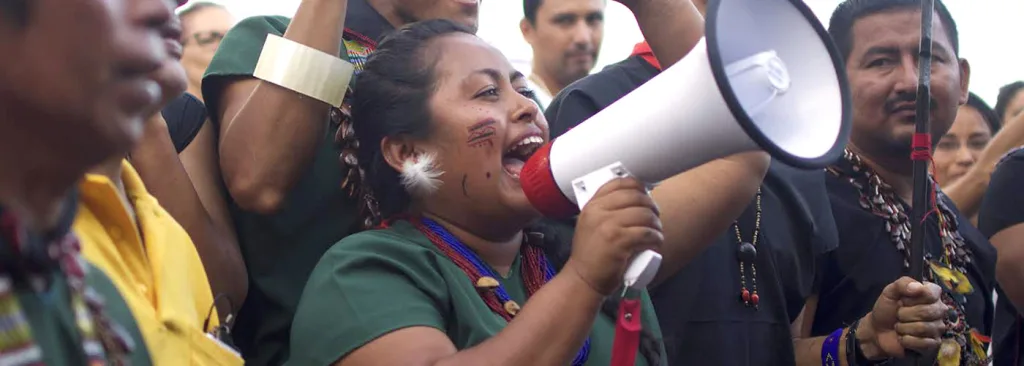Colombia is home to several of the world’s most biodiverse regions. Their protection lies in the hands of Indigenous and forest-dependent communities who manage over 30 million hectares of forest. But these frontline defenders are under attack and face systemic barriers to environmental justice. Living Forests, Strong Communities aims to tap into a unique opportunity. By ensuring the proper implementation of the Escazú Agreement we can equip Indigenous communities with policy, legal and monitoring tools to defend their rights and their land.
What is at stake
Colombia is facing several environmental and social crises at the same time. Illegal logging, land grabbing, extractive industries, and cocaine cultivation all contribute to deforestation. This not only leads to biodiversity degradation and weakened climate resilience; it also means forest-dependent people are increasingly exposed to violence and harassment. Indigenous communities find themselves at the forefront of these challenges. But despite their stewardship, systemic barriers – limited access to the judicial system and exclusion from decision-making processes – keep environmental justice far from reach.
An important opportunity
Fortunately, an important opportunity has arisen. Colombia recently ratified the Escazú Agreement. This regional agreement, signed by countries in Latin America and the Caribbean, aims to ensure the full implementation of rights to access environmental information, public participation in environmental decision-making processes and access to justice in environmental matters.
Living Forests, Strong Communities supports Indigenous communities in advocating for the proper and robust implementation of the agreement, so it becomes a powerful legal and policy instrument for communities to claim and defend their environmental and human rights.
Our approach
The entry point of the project is the Escazú Agreement. Once translated into national law and properly implemented, the agreement can become a valuable, robust and long-lasting framework for environmental governance and justice. The project’s five interventions are therefore designed to:
- Increase knowledge and awareness about the Escazú Agreement, so communities can advocate strong enforcement of environmental justice.
- Develop and promote legislative proposals building on provisions in the Escazú Agreement to combat illegal deforestation and guarantee Indigenous territorial rights.
- Equip communities with digital forest monitoring tools to allow them to gather evidence of degradation, which underpins their policy and legal efforts to protect their lands, making effective use of the stipulations in the Escazú Agreement.
- Strengthen the capacity of communities to access environmental justice by educating and training community members.
- Collaborate with government bodies to improve their participatory decision-making processes
Where
Colombia
Period
August 2025 – June 2027
Partners
Living Forests, Strong Communities is implemented in close collaboration with two key Colombian partner organizations that bring local expertise, community trust, and strong implementation capacity:
Cambio Sostenible is a civil society organization with deep experience in community organizing, sustainable development, and Indigenous rights.
Noís Radio–Corporación La Sónica is a community media and communications collective that focuses on social and environmental justice.
Donor
The project is supported by the Swedish Postcode Lottery Foundation
